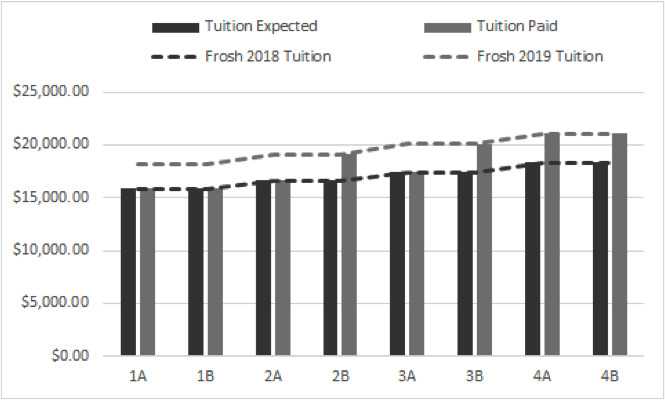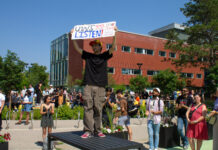Now that I have your attention, this is the case for many international co-op students, who can pay thousands more in tuition than UW’s own standards permit.
It’s all about the way co-op students move through university more slowly than regular students, because of work terms.
UW’s predictable tuition framework, which WUSA helped lobby to create, outlines that international student tuition should not be raised more than 15 per cent for an entry year, and not more than 5 per cent for upper years.
So if your 2019 first year tuition is $1,000, the next year it shouldn’t increase by more than $50 ($1,000 x 5 per cent), and incoming first years after you shouldn’t pay more than an additional $150 ($1000 x 15 per cent).
UW does this by classifying students into categories in which each student in a certain year and program pays the same fee.
However, this framework seems to casually skim over the fact that over 60 per cent of students here don’t graduate within four years of admission.
Let’s say you’re one of those unfortunate co-op students who does not graduate in four years.
Fast-forward and you’re in 4B, about to graduate, and sharing classes with the regular-stream students who came into university a year after you.
Since you’re both in 4B, you’re both paying the same tuition.
Remember that 15 per cent increase from earlier that you were never supposed to see? Yeah, you’re paying that now.
Somewhere along the line, your tuition didn’t go up by 5 per cent, but by 15 per cent. Often that hits in term 2B.
In their 2B, 3B, 4A, and 4B terms, many co-op students are actually paying the tuition of their counterparts who entered a year after them, as shown in the graph.
Now, is UW doing anything to fix this?
The answer is a murky “Maybe?” Here’s what the Dean of Math, (James Rush), and Provost (Stephen Watt) had to say: “… [this] is offset by increasing earnings in later work terms, due to advanced qualifications and increased wages due to annual inflation.”
They also stated that additional annual increases are experienced by all students whose studies are longer for whatever reason.
Through Student Council, WUSA has stated its opposition to the notion that co-op students paying higher tuition should be offset by increasing earnings in later work terms, and has also expressed its desire for a comprehensive, predictable tuition framework.
If the University fails to provide this, WUSA will seek to inform current and potential future students of the full cost of choosing a co-op degree at UWaterloo.
If you’re concerned that you’ve already paid thousands too much in tuition, here are the email addresses of Waterloo’s President (fhamdull@uwaterloo.ca) and Provost (jwerush@uwaterloo.ca).
You can read more details at bit.ly/UW-Tuition.
































